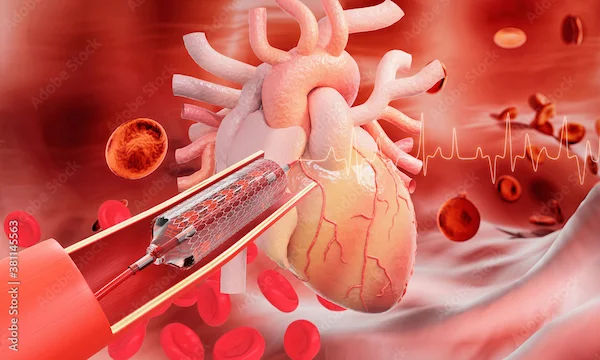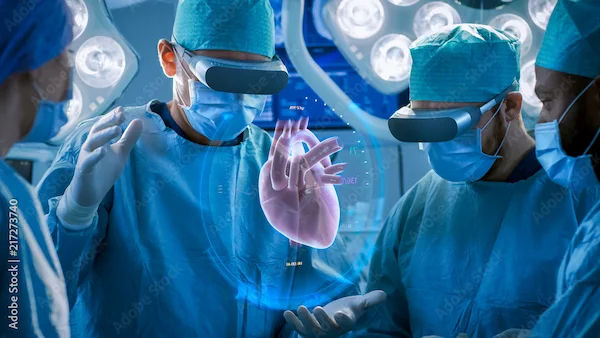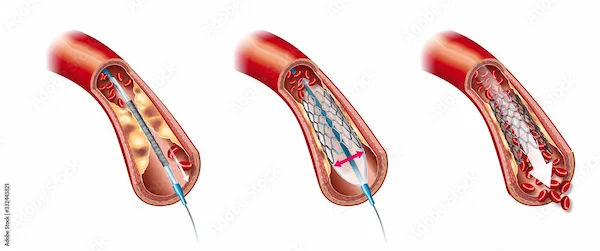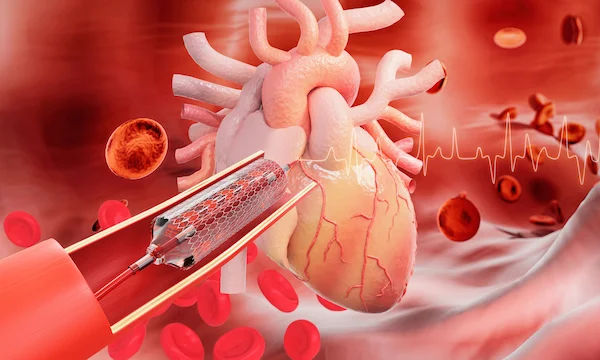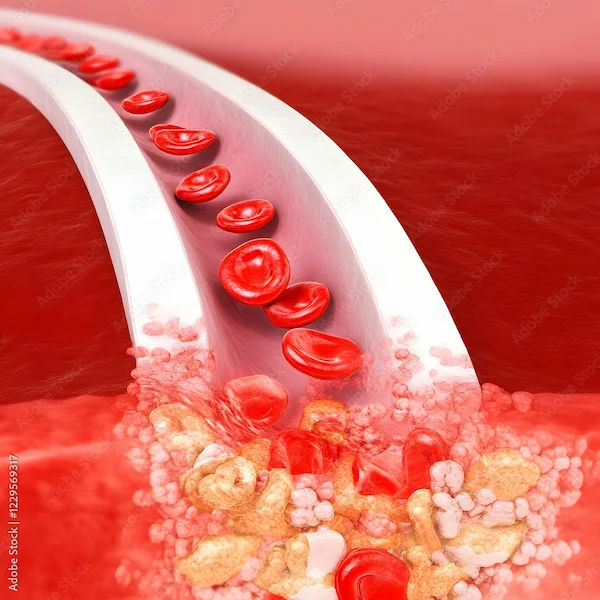Nursing Management After Coronary Angioplasty
Explore key aspects of nursing management after coronary angioplasty, including patient monitoring, medication administration, complication prevention, and education.

Written by
Last updated on 10th Jul, 2025
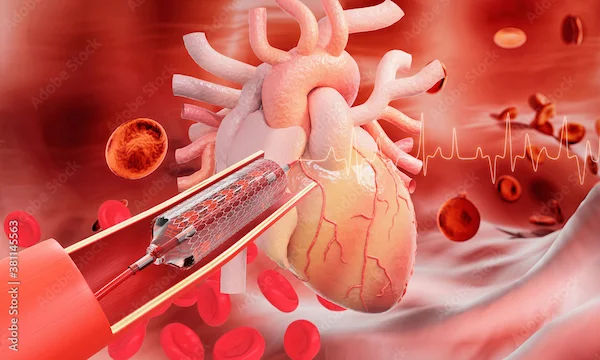
Introduction
Undergoing a coronary angioplasty can be a life-changing experience. While the procedure helps restore blood flow to your heart, proper post-procedure care is crucial for a smooth recovery. Nursing management plays a vital role in ensuring you heal well and reduce the risk of complications.
This article will guide you through what to expect after angioplasty, how nurses assist in your recovery, and steps you can take to maintain heart health.
What is Coronary Angioplasty?
Coronary angioplasty (also called percutaneous coronary intervention or PCI) is a minimally invasive procedure used to open blocked or narrowed coronary arteries. A small balloon is inflated to widen the artery, and often a stent (a tiny mesh tube) is placed to keep it open. This improves blood flow to the heart, reducing chest pain (angina) and preventing heart attacks.
Why is Nursing Care Important After Angioplasty?
After the procedure, you will be closely monitored by nurses to:
Ensure the insertion site heals properly.
Monitor for any complications like bleeding, infection, or blood clots.
Help manage pain and discomfort.
Educate you on medications, lifestyle changes, and warning signs to watch for.
Consult Top Cardiologists For More Information
What to Expect Immediately After Angioplasty?
Here are some things you can expect right after angioplasty:
1. Recovery in the Hospital
You will spend a few hours in a recovery area where nurses will check your:
Vital signs (blood pressure, heart rate, oxygen levels).
Insertion site for bleeding or swelling.
Pulse in the arm or leg where the catheter was inserted.
You may need to lie flat for a few hours to prevent bleeding.
Nurses will encourage you to drink fluids to flush out the contrast dye used during the procedure.
2. Pain and Discomfort
Mild soreness at the insertion site is normal.
Nurses may give pain relief if needed.
3. Activity Restrictions
Avoid lifting heavy objects or strenuous activities for a few days.
Follow your doctor’s advice on when to resume driving, work, and exercise.
Nursing Care at Home: What You Should Know?
Once discharged, you must take certain precautions to ensure a safe recovery.
1. Caring for the Insertion Site
Keep the area clean and dry for at least 24–48 hours.
Watch for signs of infection (redness, swelling, pus, or fever).
Avoid soaking in baths or swimming until fully healed.
2. Medications
Your doctor will prescribe medications to:
Prevent blood clots (e.g., aspirin, clopidogrel)
Control cholesterol (statins)
Manage blood pressure or diabetes if needed
Never stop medications without consulting your doctor
3. Recognising Warning Signs
Contact your doctor immediately if you experience:
Severe pain, swelling, or bleeding at the insertion site.
Chest pain or pressure similar to before the procedure.
Shortness of breath, dizziness, or fainting.
Fever or signs of infection.
Lifestyle Changes for a Healthy Heart
Angioplasty is not a cure—it’s a treatment. To keep your heart healthy:
1. Follow a Heart-Healthy Diet
Eat more fruits, vegetables, whole grains, and lean proteins.
Reduce salt, sugar, and unhealthy fats (fried foods, processed snacks).
Limit alcohol and avoid smoking.
2. Stay Active (With Doctor’s Approval)
Start with light walking and gradually increase activity.
Aim for at least 30 minutes of moderate exercise most days.
3. Manage Stress
Practice relaxation techniques like deep breathing, meditation, or yoga.
Get enough sleep (7–9 hours per night).
4. Regular Follow-ups
Attend all follow-up appointments with your cardiologist.
Monitor blood pressure, cholesterol, and blood sugar levels.
When to Seek Emergency Help?
Call emergency services if you have:
Severe chest pain that doesn’t go away with rest.
Difficulty breathing or sudden weakness.
Fainting spells or irregular heartbeat.
How Apollo 24|7 Can Help?
If you have concerns about your recovery or need expert cardiac care, Apollo 24|7 offers:
Consultations with cardiologists from the comfort of your home.
Lab tests to monitor your heart health.
Personalised recovery plans to help you stay on track.
Book a consultation today through the Apollo 24|7 app or website for expert guidance on post-angioplasty care.
Conclusion
Recovering from coronary angioplasty requires patience and proper care. Nurses play a crucial role in monitoring your health, preventing complications, and guiding you toward a heart-healthy lifestyle. By following medical advice, taking prescribed medications, and making positive lifestyle changes, you can enjoy a better quality of life and reduce the risk of future heart problems.
Consult Top Cardiologists
Consult Top Cardiologists For More Information

Dr. Sumanta Chatterjee
Cardiologist
12 Years • MBBS,MD General Medicine,DM Cardiology
Kolkata
HealthYou Speciality Clinic & Diagnostics., Kolkata
(25+ Patients)

Dr. Amit. A. Bharadiya
Cardiologist
12 Years • MBBS, MD General Medicine, DNB Cardiology
Maharashtra
Surabhi Hospital, Maharashtra, Maharashtra
Dr. Dixit Garg
Cardiologist
10 Years • MBBS , DNB (General medicine) , DNB (cardiology)
Gurugram
Smiles & Hearts, Gurugram
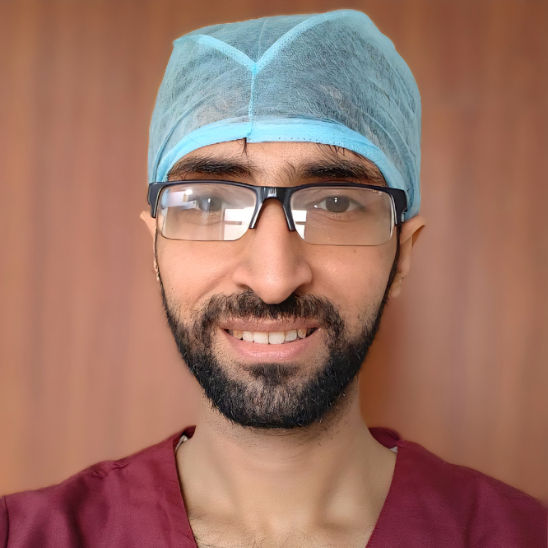
Dr. Pinaki Nath
Cardiologist
8 Years • MBBS, MD General Medicine, DM Cardiology
Barasat
Diab-Eat-Ease, Barasat
Dr. Sibashankar Kar
Cardiologist
10 Years • MBBS, DNB
Bhubaneswar
Hi-Tech Medical College & Hospital, Bhubaneswar
Consult Top Cardiologists

Dr. Sumanta Chatterjee
Cardiologist
12 Years • MBBS,MD General Medicine,DM Cardiology
Kolkata
HealthYou Speciality Clinic & Diagnostics., Kolkata
(25+ Patients)

Dr. Amit. A. Bharadiya
Cardiologist
12 Years • MBBS, MD General Medicine, DNB Cardiology
Maharashtra
Surabhi Hospital, Maharashtra, Maharashtra
Dr. Dixit Garg
Cardiologist
10 Years • MBBS , DNB (General medicine) , DNB (cardiology)
Gurugram
Smiles & Hearts, Gurugram

Dr. Pinaki Nath
Cardiologist
8 Years • MBBS, MD General Medicine, DM Cardiology
Barasat
Diab-Eat-Ease, Barasat
Dr. Sibashankar Kar
Cardiologist
10 Years • MBBS, DNB
Bhubaneswar
Hi-Tech Medical College & Hospital, Bhubaneswar
